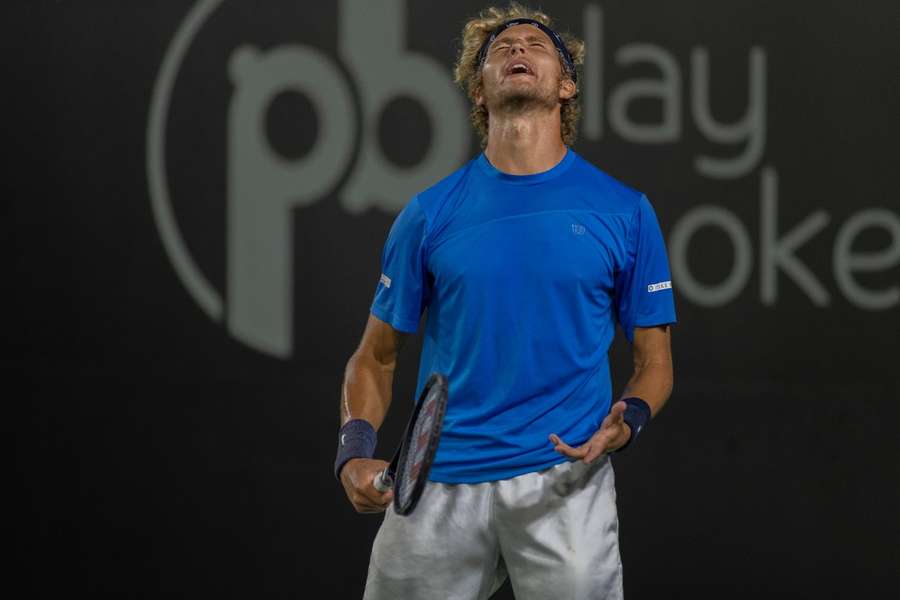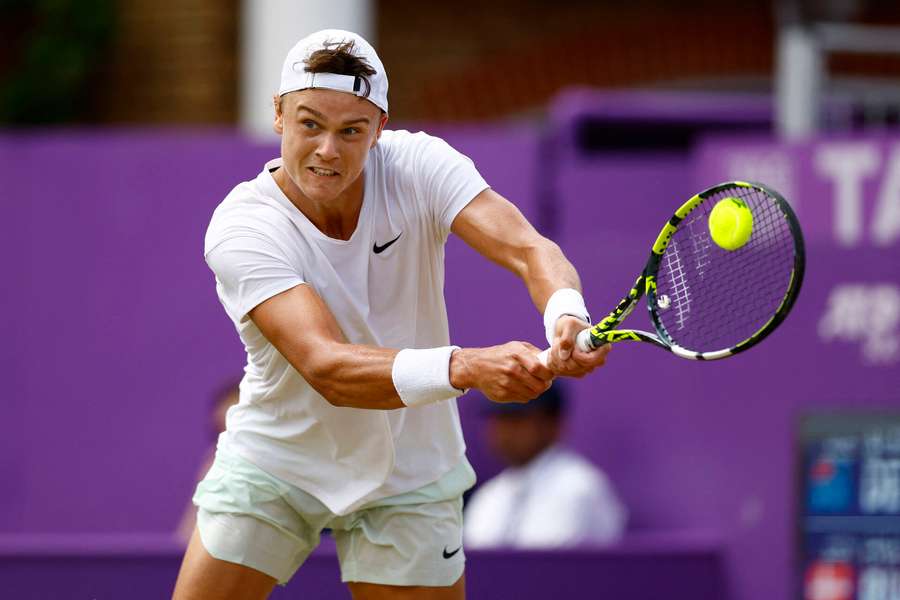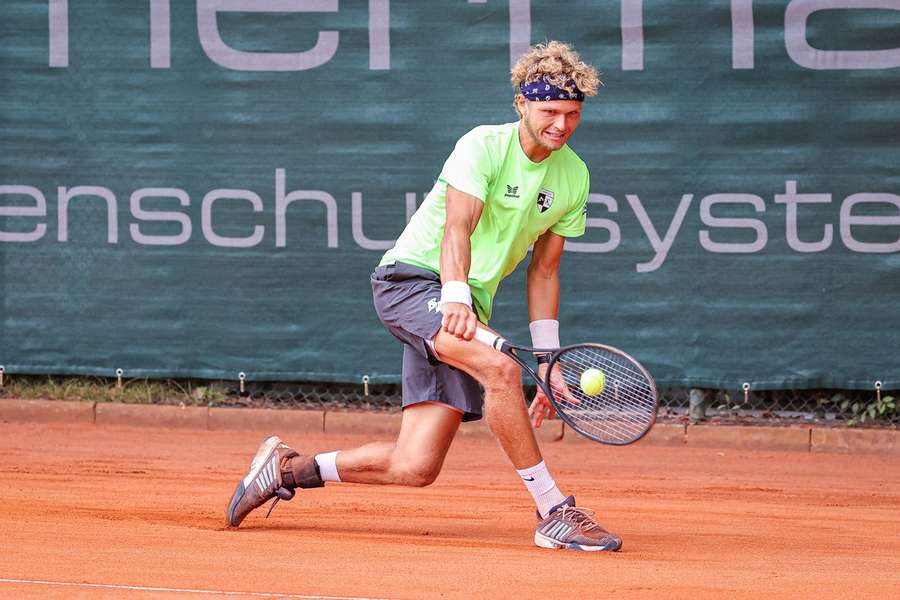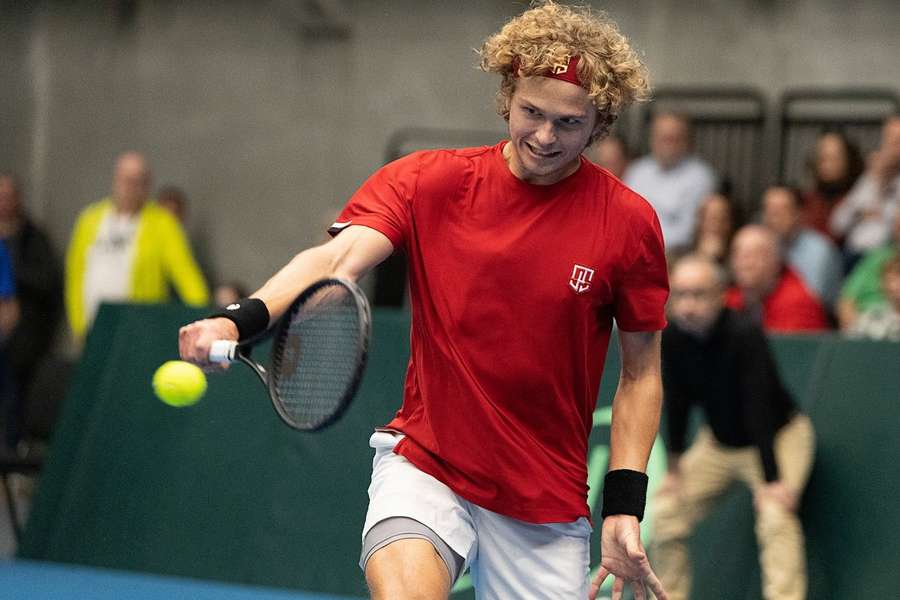One of them is August Holmgren, who at the age of 25 is in his first year on the tour after a long career in American college tennis at the University of San Diego.
It's been a largely positive experience, as he started the year ranked 789 in the world and has already climbed to 443. That's a huge jump in just one year, but if anyone thinks Holmgren is sleeping on his success, think again.
Holmgren spoke with Flashscore News about life on tour as an up-and-coming tennis professional.
Extensive planning
The sheer amount of planning that goes into deciding which tournaments to attend in different parts of the world would make most people dizzy. Holmgren has a total of around 150-180 travelling days a year, and in between, he has to figure out where it will be most beneficial to travel.
"I try to plan about six months ahead, but it's challenging when the Challenger tournaments are only announced a few months ahead," said Holmgren.
"As a tennis player, you have to play about 25 tournaments a year, and it's the 19 best results per year that count towards the rankings. Last year, I spent a lot of time in the US, this year I've mostly been in Europe.
"You make plans with your team about where it makes the most sense to travel, when to train and where I play best. You also have to consider that you lose 2-3 days when you change time zones," says Holmgren.

The fight against loneliness
Part of the travel programme is also based on whether August can travel with other players or coaches because loneliness and negative thoughts can easily creep into your head if you are thousands of kilometres away from familiar surroundings and have to deal with a heavy defeat without anyone to talk to.
"I try to travel with others as much as I possibly can because if I'm travelling alone for many weeks, I get sad and I don't play as well. So I try to travel with coaches and other players.
"For example, in April in England, I was there with Frederik Lochte Nielsen, Johannes Ingildsen, Christian Sigsgaard and Johanne Svendsen. But sometimes I have to travel alone if my coach can't make it work with his programme," said August Holmgren, who goes on to explain how he deals with potentially difficult social moments.
"It's no good being lonely because it's detrimental to your tennis. And something that has helped me a lot has been to do something other than tennis, see some sights and enjoy the opportunity to travel to exotic places."

Good advice from Holger Rune
Holger Rune has become the symbol of Danish tennis that a budding talent combined with hard work and the right team around him can take you to the absolute world elite.
August and Holger know each other well from the Danish Davis Cup team, but due to their busy schedules, the two Danes don't have much contact with each other.
However, August says that Rune has actually given him some good advice on how to tackle difficult moments on tour when one defeat follows another and you find yourself in a mental stalemate.
"I actually wrote to Holger not so long ago to hear what he did because I had a period when things were not going so well. He actually wrote back something very cool, that he tried to find the small joys of the game that were not hung up on results, such as hitting the ball right in the strike zone.
"And then I guess it's also about finding a way to enjoy the process of improving so that your confidence isn't necessarily tied to whether you won or lost the last game because then you're in mega-ecstasy or depressive and that just doesn't work," said Holmgren.
Financial challenges
But the battle to reach the world rankings is not just a question of mental balance, a good backhand, a well-developed escape game and good footwork. It's also very much a question of money, a lot of money because being a tennis player on the tour is expensive.
You have to spend money on travel, hotels, food, racket strings, massages, coach assistance, etc. So how exactly can you afford that when you come from an average family and have only a few sponsors who don't throw millions into the coffers?
Danish national coach Frederik Lochte Nielsen has previously been in the same financial situation and he answers the question as follows:
"There is no doubt that the financial challenge is one of the biggest challenges you have. When it comes to travelling, there are different ways to get from A to B. You can walk, you can cycle, you can take the bus, you can drive a Ferrari, you can fly and the most comfortable is, of course, always the most optimal.
"But you can also "rattle". In the beginning, it's all about survival, so you try to save where you can. Maybe you can't get your coach to come along, maybe you can't get your racket strung every time, maybe you have to eat cheap food. If you come from an ordinary background, you'll be fine, but if you come from tough conditions in poor countries, it can be difficult to get started," said Nielsen.

A good foundation
Like many others, finances have been a challenge for Holmgren, but he has managed to make ends meet thanks to help from various sources, and at the same time he has "saved up" for life on tour by playing team matches in the German Bundesliga for THC Bruhl.
"In terms of finances, I've been really lucky. My parents have supported me a lot. Then I've had support from Danish Tennis, the Leschly Foundation and some other sponsors that I've gotten through the exposure that my stay in college gave me."
"So it hasn't been that hard for me to make ends meet, but I'm also in a much more financially favourable position than many other players," said Holmgren, who emphasised that you can start making a living from your tennis when you move within the Top 500 in the world.
Holmgren explains that his goal for 2023 is to be able to get into Challenger tournaments on a regular basis because that's where he can start earning some money, get some more expenses paid and things can start to run a little better financially.
This would then give him the opportunity to qualify for the Grand Slam tournaments, which in turn would clear the way for the ATP tournaments, which is what it's all about. And according to Nielsen, Holmgren has a fantastic chance to realise his dream:
"There is a good chance that August can go far with his game. He has a good foundation, a good serve, a good forehand. The most important thing for August is that he has a good character, and that goes a long way.
"He's just getting started after a long college career. At the same time, he is willing to do what it takes to become good, so I have a lot of faith in him," concluded Nielsen.

